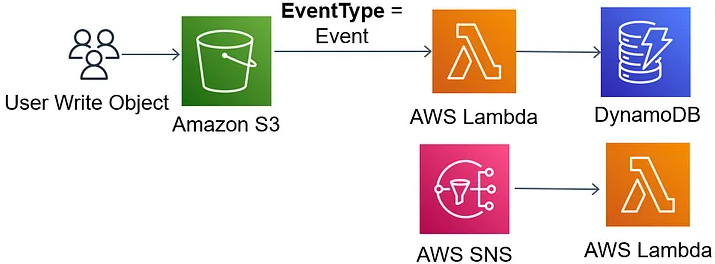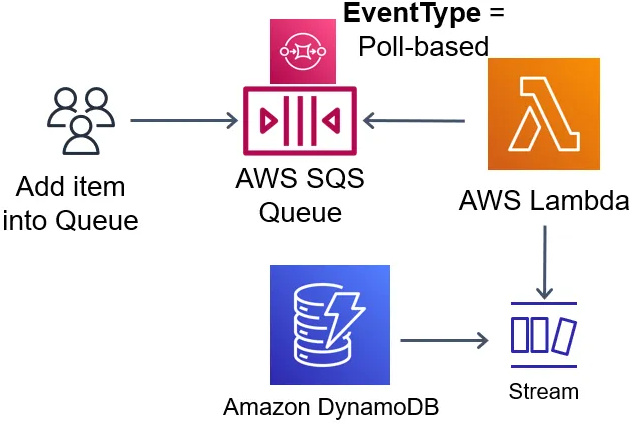Triggering Lambda Functions
Lambda integrates with other AWS services to invoke functions.
Lambda function is the code and runtime that process events.
Trigger is the AWS service or application which generates events that invoke the function.
Lambda functions can be invoked manually by using the Lambda API - asynchronously and synchronously, or Lambda polls the supported services on your behalf and runs your functions.
Asynchronous (Event-based) Invocations

Here is an example of an asynchronous invoke using the CLI:
aws lambda invoke —function-name MyLambdaFunction —invocation-type Event —payload “[JSON string here]”
The following is a list of AWS services that invoke Lambda functions asynchronously:
- Amazon EventBridge (CloudWatch Events)
- Amazon Simple Notification Service (SNS)
- Amazon Simple Storage Service (S3)
- AWS Config
- Amazon CloudWatch Logs
- Amazon Simple Email Service (SES)
- AWS IoT
- AWS IoT Events
- AWS CloudFormation
- AWS CodeCommit
- AWS CodePipeline
Synchronous (Push-based) Invocations

Here is an example of a synchronous invoke using the CLI:
aws lambda invoke —function-name MyLambdaFunction —invocation-type RequestResponse —payload “[JSON string here]”
The following is a list of AWS services that invoke Lambda functions synchronously:
- Amazon API Gateway
- Elastic Load Balancing (Application Load Balancer)
- Amazon CloudFront (Lambda@Edge)
- Amazon Kinesis Data Firehose
- Amazon Cognito
- Amazon Simple Storage Service Batch
- Secrets Manager
- Amazon Alexa
- Amazon Lex
- Amazon Connect
- Amazon VPC Lattice
Poll-based Invocations

The following are polling-based services:
- Amazon Simple Queue Service (SQS)
- Amazon MQ
- Amazon DynamoDB Streams
- Amazon Kinesis
- Amazon Managed Streaming for Apache Kafka (MSK)
- Self-managed Apache Kafka
📄️ Triggering Lambda Functions
Lambda integrates with other AWS services to invoke functions.
🗃️ Examples
5 items
📄️ References
Hello Lambda